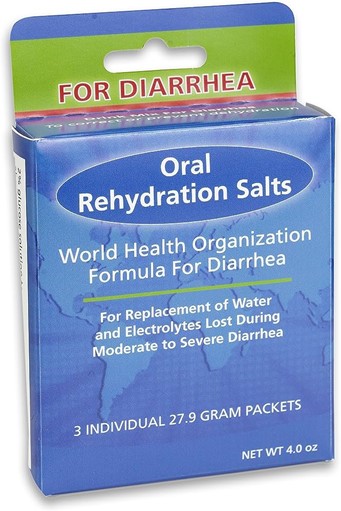Which nursing intervention should a nurse expect to perform on a 7-year-old child diagnosed with mild dehydration secondary to diarrhea?
Administer a bolus of intravenous (IV) fluids as ordered.
Offer clear fluids, popsicles, and gelatin as tolerated by the child.
Offer oral rehydration solution (ORS) in small, frequent amounts.
Keep the child on a strict BRAT (bananas, rice, applesauce, toast) diet.
The Correct Answer is C
Choice A rationale:
Administering a bolus of intravenous (IV) fluids might be necessary for severe dehydration, but in mild dehydration, oral rehydration is preferred as it avoids potential complications associated with IV fluids.
Choice B rationale:
Offering clear fluids, popsicles, and gelatin is appropriate, but this choice does not specifically address rehydration, which is the primary concern in mild dehydration.
Choice C rationale:
Offering oral rehydration solution (ORS) in small, frequent amounts is the most appropriate intervention for mild dehydration secondary to diarrhea. ORS contains the right balance of electrolytes and fluids to rehydrate without overwhelming the gastrointestinal tract.
Choice D rationale:
Keeping the child on a strict BRAT diet (bananas, rice, applesauce, toast) is an outdated approach. While BRAT foods can be tolerated during mild illness, they lack the necessary electrolytes and fluids to effectively rehydrate.

Nursing Test Bank
Naxlex Comprehensive Predictor Exams
Related Questions
Correct Answer is D
Explanation
The correct answer is choice d. Places the child in a prone position after feeding.
Choice A rationale:
Holding the child’s head in an upright position during feeding is appropriate as it helps prevent aspiration and ensures proper swallowing.
Choice B rationale:
Placing the tip of the syringe in the side of the child’s mouth is correct because it helps direct the formula to the back of the mouth, reducing the risk of choking.
Choice C rationale:
Burping the child frequently during the feeding is necessary to release any swallowed air, which can help prevent discomfort and spitting up.
Choice D rationale:
Placing the child in a prone position after feeding is incorrect and indicates a need for further instructions. After feeding, the child should be placed in an upright or slightly elevated position to prevent aspiration and reduce the risk of gastroesophageal reflux.
Correct Answer is C
Explanation
Urine output 76 mL/24 hours.
Choice A rationale:
BUN (Blood Urea Nitrogen) of 14 mg/dL falls within the normal range (7-20 mg/dL) and is not an immediate concern.
Choice B rationale:
Serum Creatinine of 0.4 mg/dL is also within the normal range (0.2-0.5 mg/dL) and does not warrant immediate action.
Choice C rationale:
Urine output of 76 mL/24 hours is significantly decreased from the expected normal range (1-2 mL/kg/hour), indicating potential kidney dysfunction or dehydration. This requires immediate action to assess the child's hydration status and kidney function.
Choice D rationale:
Hb (Hemoglobin) of 12 g/dL is within the normal range for a 5-year-old child (11.5-15.5 g/dL) and does not necessitate urgent intervention.
Whether you are a student looking to ace your exams or a practicing nurse seeking to enhance your expertise , our nursing education contents will empower you with the confidence and competence to make a difference in the lives of patients and become a respected leader in the healthcare field.
Visit Naxlex, invest in your future and unlock endless possibilities with our unparalleled nursing education contents today
Report Wrong Answer on the Current Question
Do you disagree with the answer? If yes, what is your expected answer? Explain.
Kindly be descriptive with the issue you are facing.
